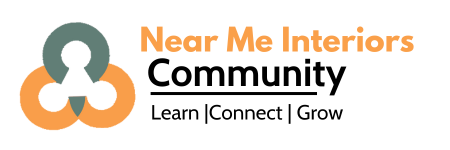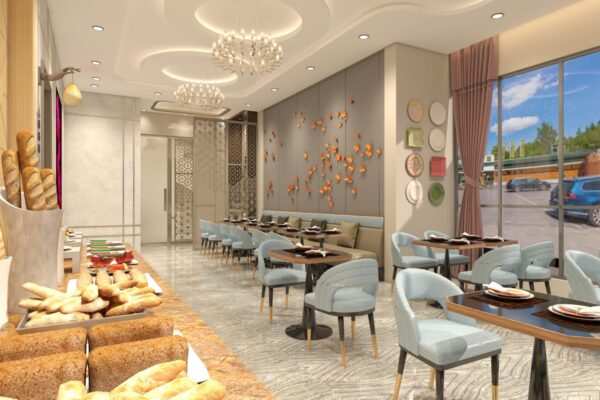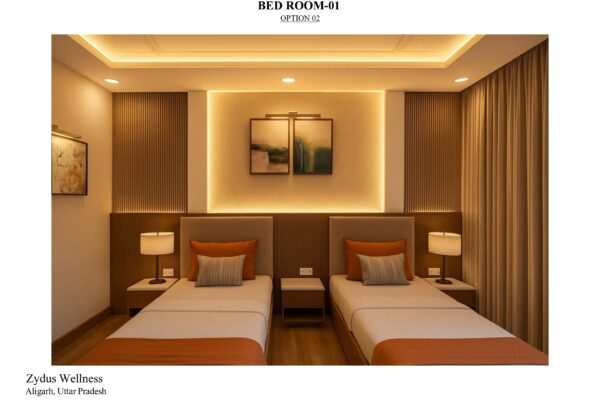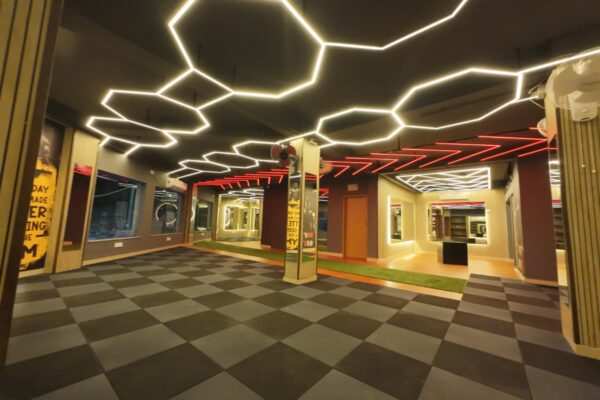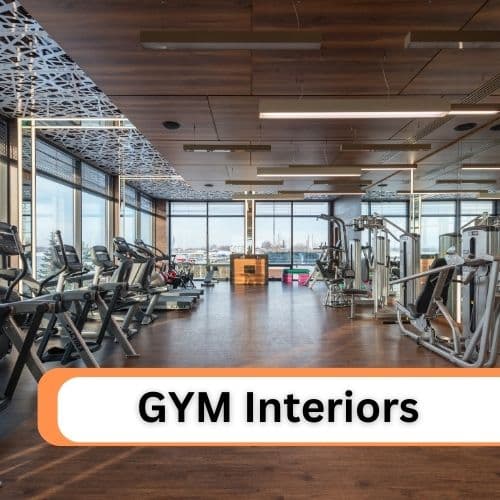Hiring a commercial interior designer is one of the most critical decisions for any business owner planning a workspace transformation. Whether you’re establishing a new office, renovating a retail outlet, or optimizing your hospitality space, your chosen designer will have a direct impact on employee productivity, customer experience, and ultimately, your bottom line.
Unlike residential projects, commercial interiors demand technical precision, industry-specific knowledge, and a deep understanding of business operations. Aesthetics alone don’t cut it; what you need is a strategic partner who can design with function, brand, and growth in mind.
Below is a comprehensive checklist to help you hire the right commercial interior designer who delivers value beyond just great-looking spaces.

1. Define the Project Scope and Business Objectives
Every successful commercial design begins with clarity of purpose.
Start by asking yourself:
- Are you designing for employee collaboration and workflow efficiency?
- Do you want your space to reflect a strong brand identity?
- Are you optimizing the layout for footfall, accessibility, and compliance?
Detail your expectations in a project brief, including:
- Total square footage
- Operational needs (work zones, waiting areas, storage)
- Technological integration (networking, AV systems)
- Expected timeline and budget
- Functional concerns like HVAC zoning, lighting, and noise control
Your designer should customize the layout and material palette based on these business-specific goals. A cookie-cutter approach won’t suffice.
2. Choose a Designer with Industry-Relevant Experience
Not every interior designer has the chops for commercial work. Look for a specialist in commercial interiors with relevant sector experience—be it corporate offices, healthcare, retail, or hospitality.
Request and review:
- A portfolio showcasing similar business spaces
- Case studies or testimonials from previous commercial clients
- Expertise in industry-specific regulations, like HIPAA for clinics or FSSAI standards for restaurants
Pro Tip: Residential design doesn’t automatically qualify someone for commercial interiors. Commercial projects involve different scale, compliance, and user behavior.
3. Investigate Project Management and Budget Controls
Commercial projects often run into six or seven figures and involve tight deadlines. A capable designer should be adept at handling complex project logistics, not just creative decisions.
Ask if they use professional project management tools like Trello, Asana, or Buildertrend to track:
- Procurement timelines
- Vendor assignments
- Budget usage
- Milestone completion
Clarify their billing model:
- Hourly fee with a projected time estimate
- Fixed fee based on square footage or scope
- Percentage-based fee of the total project value
- Hybrid model (e.g., fixed design + variable execution)
Request a detailed quotation that breaks down base services vs. extras, such as:
- Permit facilitation
- 3D renders
- Vendor management
- Construction supervision
- Post-installation fixes

4. Verify Technical Qualifications and Local Compliance Knowledge
Your designer should be proficient in technical documentation, understand building codes, and know the approval processes in your city or zone.
Look for credentials like:
- CIDQ, NCIDQ, or equivalent commercial design certifications
- Membership in IIID, ASID, or similar
- Experience dealing with municipal building authorities, fire safety approvals, and zoning regulations
They should be confident in:
- Space planning to streamline workflow and user flow
- Selecting commercial-grade materials for durability and safety
- Planning ergonomic furniture layouts
- Integrating power/data cabling, security systems, and lighting automation
- Ensuring ADA (or local equivalent) compliance
5. Understand Their Contractor Network and Execution Oversight
Great designs need great execution. The designer should bring a reliable team of vetted contractors, specialists, and vendors to the table.
Ask:
- Do they have long-standing relationships with licensed contractors?
- Are vendors insured and qualified for commercial-grade work?
- Will they supervise construction or rely on third-party project managers?
Effective designers visit sites regularly, resolve conflicts quickly, and maintain clear documentation of:
- Warranties
- Maintenance schedules
- Final BOQs
- Sign-offs and handover documents
This ensures your project meets safety standards and maintains performance in the long term.
6. Prioritize Timeline Planning and Business Continuity
Your designer must respect that your business cannot shut down for a renovation. Seek someone who can design and execute around your operational hours.
They should offer:
- A clear execution schedule with defined milestones
- Phased renovation plans to allow business continuity
- Work scheduling that avoids peak business hours
- Temporary solutions like mobile counters, dust control, or modular setups to keep operations running
Make sure they have contingency strategies for delays due to material shortages, weather, or permit lags.
7. Review Communication Structure and Team Accountability
With multiple stakeholders—CEOs, HR heads, admin leads—involved, miscommunication can derail your project. Ensure the design firm offers centralized communication and accountability.
They should provide:
- A single point of contact
- A shared platform for document access and updates
- Regular review meetings to keep you in the loop
- Structured protocols for change orders and budget variations
A sufficiently staffed team is a green flag—so if your primary contact is away, someone else steps in seamlessly.
8. Dive Into the Design Process and Client Engagement Model
From the discovery stage to final delivery, your designer should walk you through every phase with clarity and professionalism.
Expect a structured process like:
- Business Needs Assessment
- Mood Boards & Preliminary Concepts
- Conceptual Drawings & Space Plans
- Detailed Design & Material Selection
- Technical Drawings & Approvals
- Execution & Site Supervision
- Post-Handover Review & Support
They should tailor their engagement to your style—hands-on or hands-off. Some clients prefer to be involved in material selection; others just want a final walkthrough.
9. Check Reviews, References, and Reputation
Don’t just rely on what the designer says. Speak with past clients who had similar commercial spaces.
Ask about:
- Budget discipline
- Responsiveness to changes
- Problem-solving during execution
- After-service reliability
Look for designers who’ve maintained long-term relationships with brands—they’re more likely to deliver consistent results.
Conclusion: Choose a Partner, Not Just a Designer
The right commercial interior designer doesn’t just build a beautiful space—they align your physical environment with business goals, brand identity, and operational needs. From concept to completion, they serve as a strategic partner, not just a vendor.
At Near Me Interiors, we specialize in smart commercial interior solutions that fuel business growth while elevating design. Whether you’re a startup in Sector V or a multi-location brand, our team ensures your vision becomes a functional and inspiring reality.
